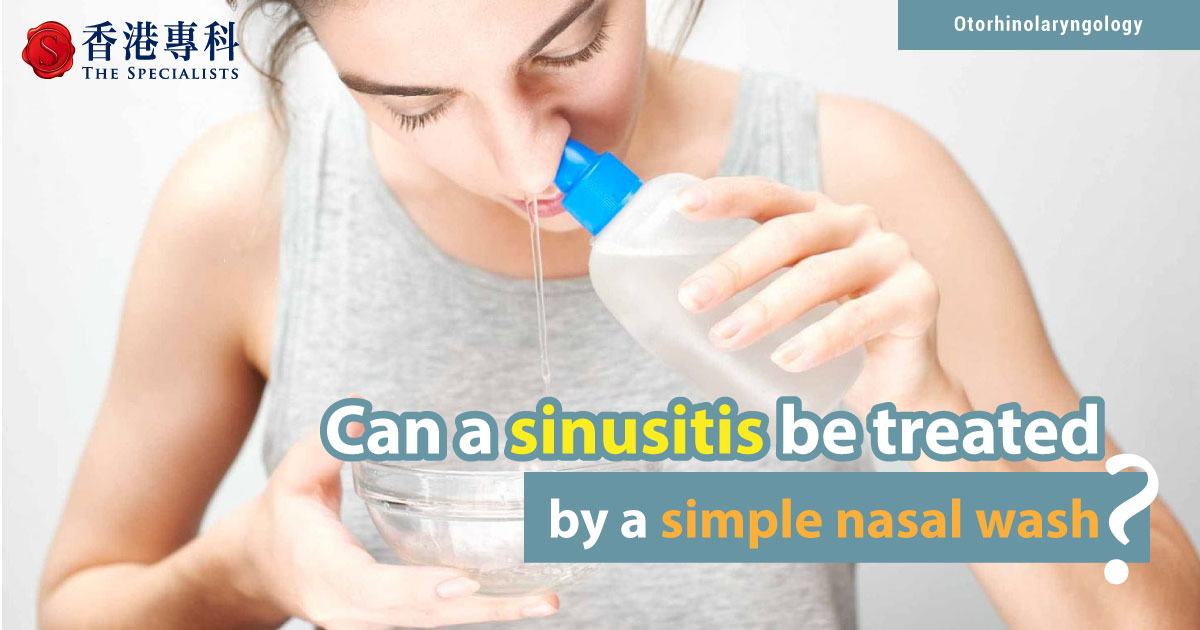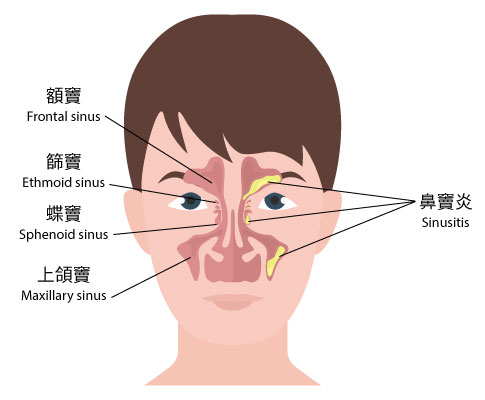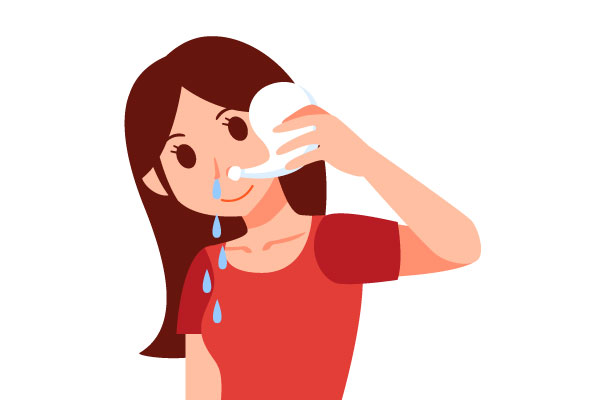Can a sinusitis be treated by a simple nasal wash?

When the sinuses become inflamed, some symptoms such as a fever, green-yellow nasal discharges, a headache and painful swelling of the face may develop. Can we prevent sinusitis by a nasal wash?
What causes sinusitis?
The sinuses are hollow air-filled spaces in the skull bones. There are four main sets of sinuses. The frontal sinuses are on either side of the forehead above the eyes. The maxillary sinuses are in each cheekbone. The smaller ethmoid sinuses are behind the bridge of the nose and between the eyes, and the sphenoids are between the upper part of the nose and behind the eyes. They’re connected to the nose and lined with the same membrane, called mucous membrane, which produces a slimy secretion (mucus) to keep the passageways moist and trap dirt particles. Sinusitis is, therefore, the inflammation of the mucous membranes. The nasal wash can wash out thick or dried mucus rather than an effective treatment.

Saline spray is not a medical treatment
Sinus diseases can be split into two categories: acute or chronic. Acute infection symptoms are similar to those of a common cold but last less than three weeks. Acute sinusitis can be treated with home treatments. Rest, inhalation of steam from a bowl of hot water, and over the counter medicines should help. A nasal wash can helps to clean mucus from the nose, decreasing infections. It can clean away the bacteria but cannot kill pathogens in the nose.
Patients with chronic condition can experience a nasal congestion, bad-smelling discharge in the nose. Doctors consider sinusitis to be chronic rather than acute when it lasts at least three months or the patient has 4 or more episodes of sinusitis per year. Doctor may recommend short courses of steroid nasal sprays to reduce swelling in the sinuses and ease the symptoms.
Saline spray is a spray of relief for sinus problems
Doctors recommend the prescription medications and sinus surgery to relieve symptoms of chronic sinusitis. Nasal irrigation can relieve sinus symptoms associated with colds. But if the symptoms persist after 2 to 3 days with a headache and painful swelling of the face, patients should consult the ENT doctor at the earliest.
Diagnosis
Nasal endoscopy may be used to investigate chronic sinusitis. This test is usually done under local anaesthetic. A flexible telescope with a light on the end is inserted into the nostril to examine the inside of the sinuses. If there’s any doubt, the doctor may recommend X-rays, magnetic resonance imaging (MRI) or computerised tomography (CT).
Prevention
Eating a healthy balanced diet accompanied by regular exercise is essential in maintaining the health. Sinusitis from allergies can sometimes be controlled by taking medications, or washing nose with a nasal spray to reduce the infection and relieve the symptoms. Individuals encounter dusty environments from time to time can rinse the nose with a saline solution. Saline lavage or irrigation help clear the sinuses but severe cases should be treated with medications.

*The above information is for reference only, please consult your doctor for detail.

 3405 8288
3405 8288
